A great resume is the first step in landing your next job in management. It’s also your best chance to stand out from the competition and impress hiring managers. A manager’s resume must highlight skills, education, and experience that show you are ready for a manager position. For example, if you have been working for the same company for many years and want a promotion, or if you have held several different places at one company and now want to specialize in a particular area, you might be looking for a new job as a manager and writing an effective resume as a manager requires different techniques than those used when applying for non-management positions. In addition, your resume should demonstrate your technical skills and ability to instruct others, inspire confidence, and solve problems.
Manager Resume Example

Download This Manager Resume as PDF
Operations Manager Resume Example
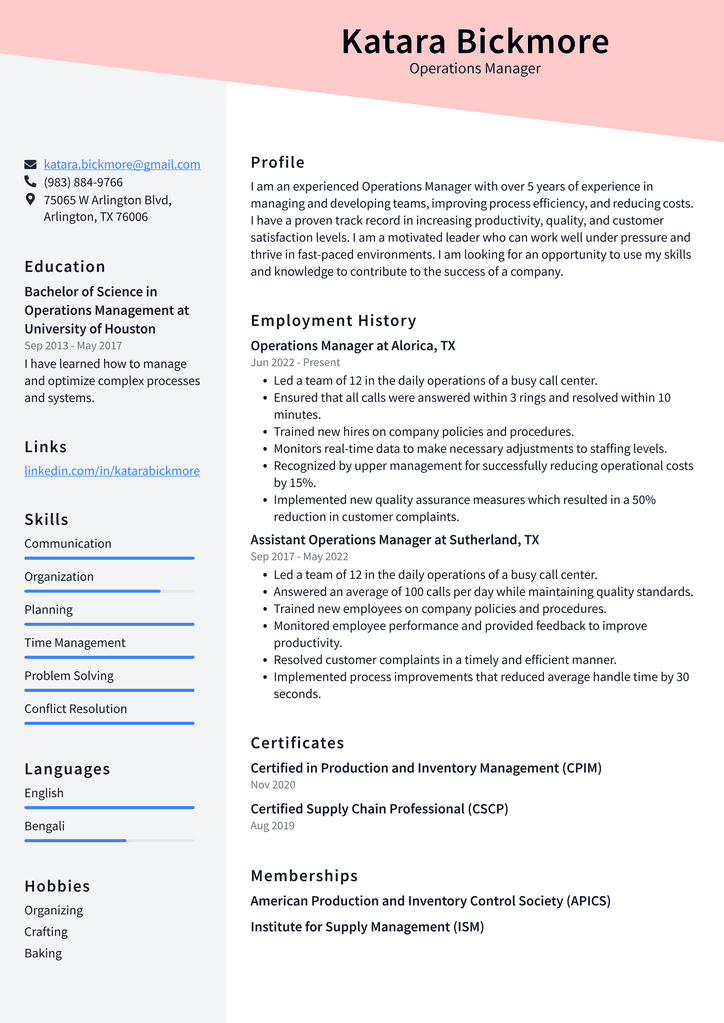
Download This Operations Manager Resume as PDF
Deputy Manager Resume Example
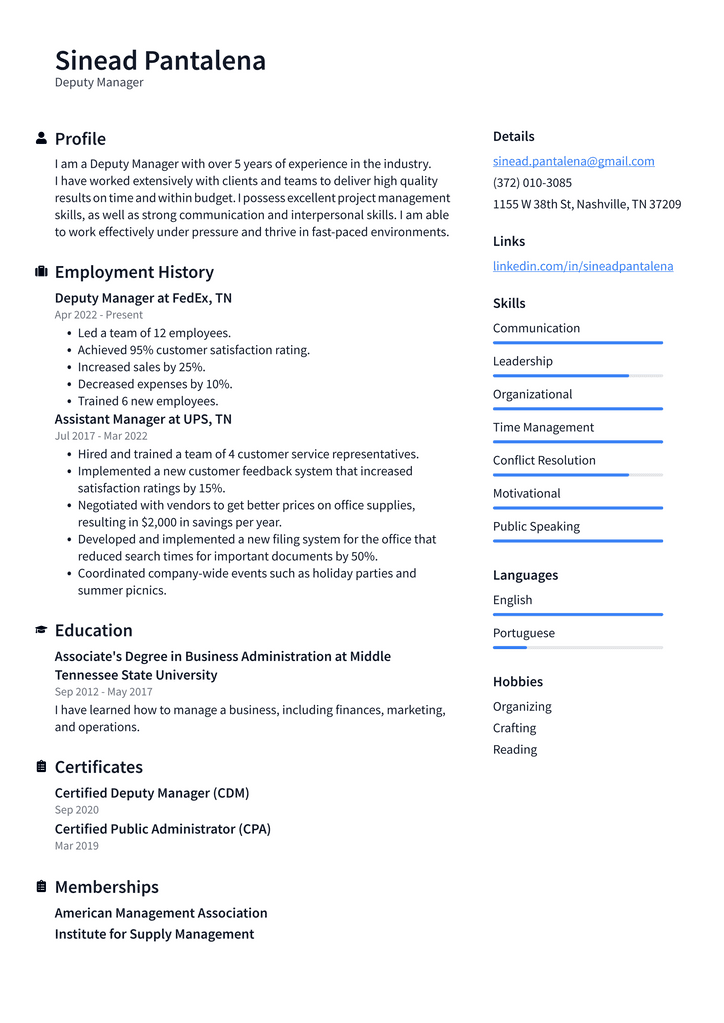
Download This Deputy Manager Resume as PDF
Store Manager Resume Example
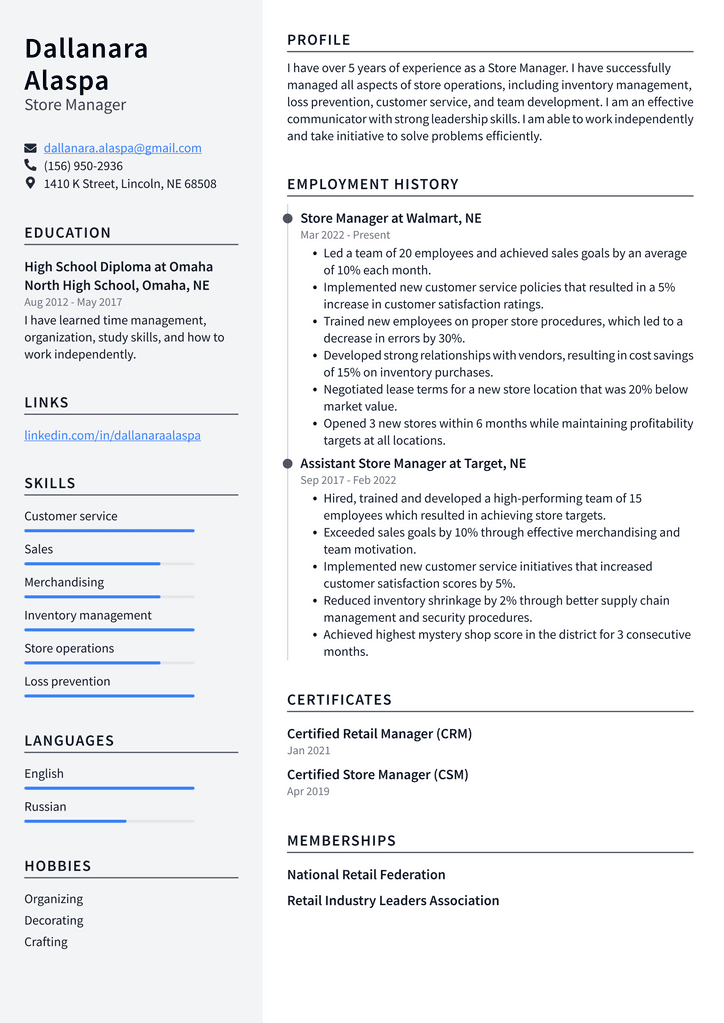
Download This Store Manager Resume as PDF
Sales Manager Resume Example
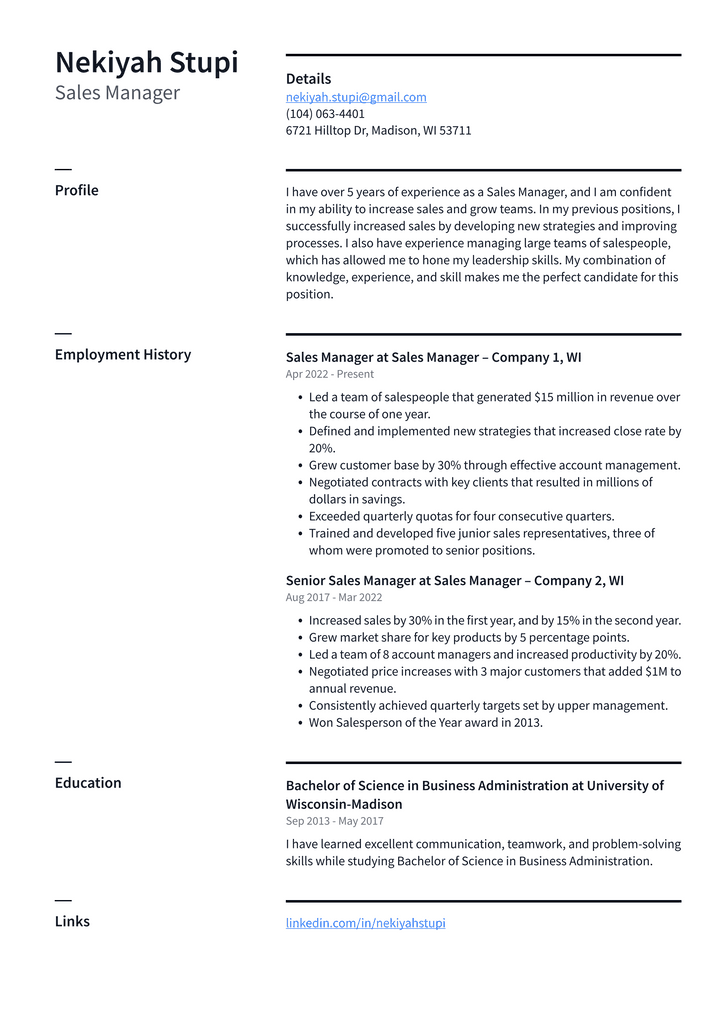
Download This Sales Manager Resume as PDF
Assistant Manager Resume Example
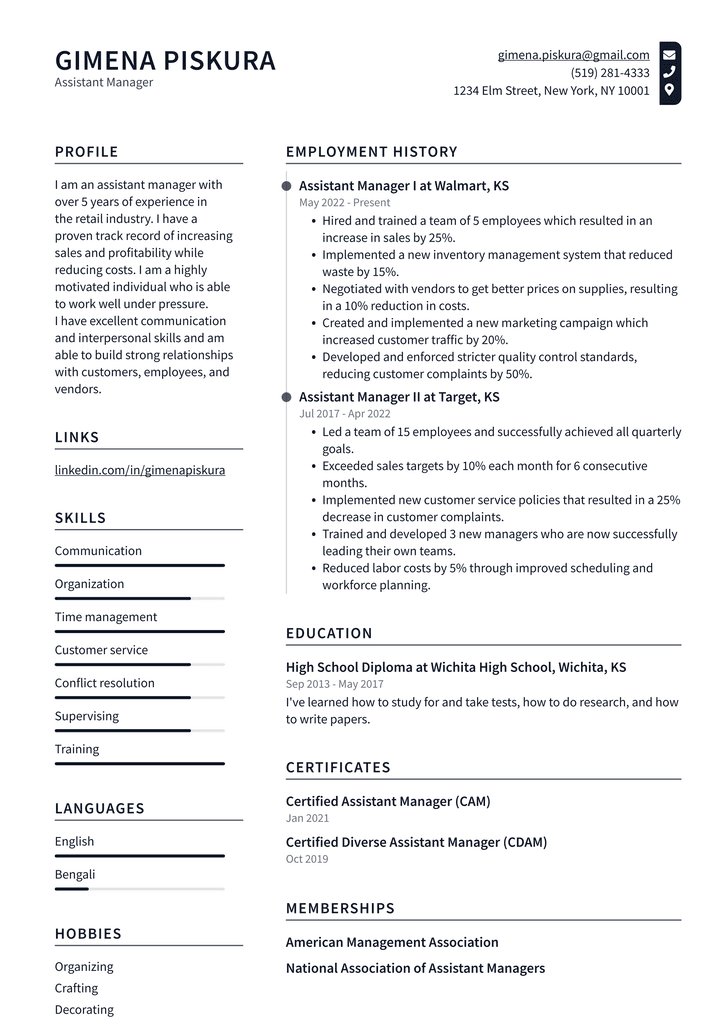
Download This Assistant Manager Resume as PDF
Project Manager Resume Example
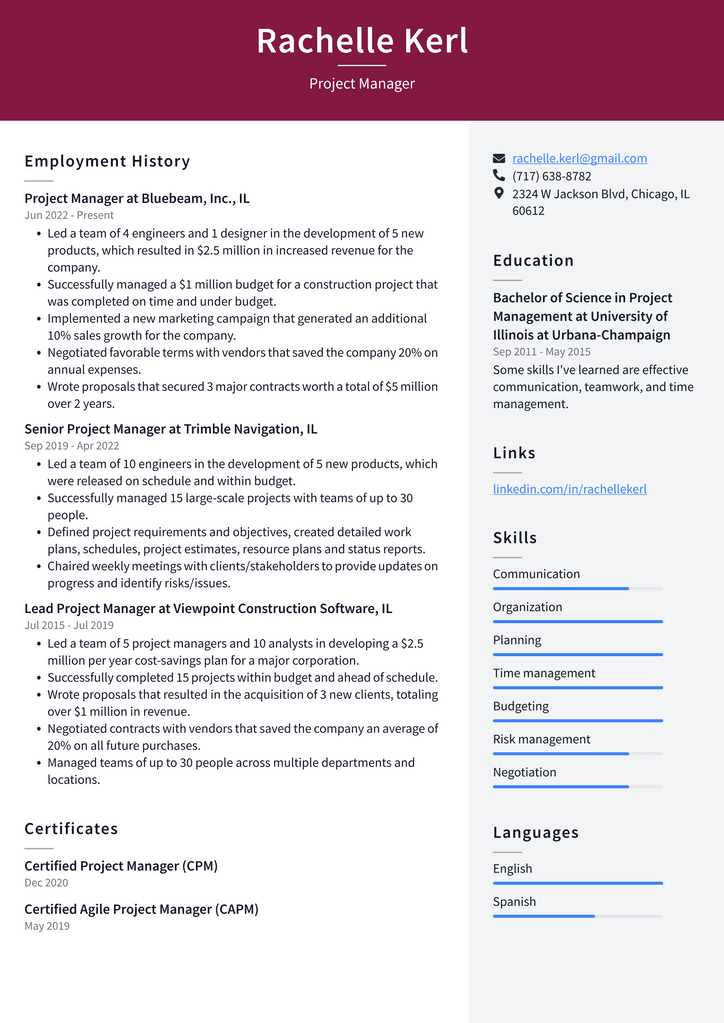
Download This Project Manager Resume as PDF
Choose a professional resume writer
When writing your resume, you want to make the best possible impression on potential employers. But how do you know if the outline you’ve written is the best it can be? Resume writers can help you create a resume that will get you noticed by hiring managers. Hiring a professional resume writer is the best way to ensure your resume is ready to go. Resume writers have a lot of experience helping people like you get their foot in the door with their dream job. They know what a hiring manager is looking for and have the expertise to make your resume stand out. If you write your resume, there is a chance it is not strong enough to get you the job you want. Even if you think your resume is good, it may not be as good as it needs to be to bring you the job.
List your most vital skills and qualifications first
The first part of your resume is the most important – it’s what hiring managers will see first, and you have only a few seconds to catch their attention. The first part of your resume aims to show that you have the qualities and skills the job requires. You’ll want to list your most vital talents, special certifications, and any other relevant information about yourself at the top of your resume. This will help hiring managers quickly understand why you’re the best person for the job. It’s essential to list your most relevant qualifications first – for example, if you want to be hired for a marketing position, you’ll want to ensure your qualifications are listed first. If you have multiple relevant skills, you can list them in any order as long as your most important qualifications are first.
Put your most recent job(s) at the top
You’ll want to list your most recent experience for a manager resume first. You can list your other jobs below that, but make sure you put a summary of your experience at the bottom of your resume. Ensure your most recent appointment (s) are listed first and highlighted. At a minimum, include the name of the company, your job title, the company’s location, your employment dates (month and year), and your reason for leaving. For example, if you’ve worked as a department manager at Acme Corp. since 2017, and you’re applying for a new job at XYZ Corp., 2019, list “Department manager” as your job title and “Acme Corp.,” “XYZ Corp.,” and the dates you worked at each company. If you worked for multiple companies simultaneously, list the most recent one first. Likewise, if you’re applying for various jobs, but the job title from the job you want first and the others below.
Summarize your other job experiences below that
The first part of your resume should be about your most recent job and most robust qualifications. The second part can be about your other job experiences. You don’t have to include every job you’ve ever had, but the ones most relevant to the job you’re applying for. For example, suppose you’re used to being a manager at a fast-food restaurant. In that case, you don’t need to put your work as a manager at a bank on your resume unless the skills you used at that job are relevant to the fast-food job, like managing a team, handling money, and payroll. If you’ve held different positions and are unsure which to list, it’s best to go with your prioritized list of job skills and qualifications. For example, if you’re applying for a sales manager job and have also worked in customer service, you can summarize both positions on your resume but list your sales experience first.
Add only relevant education at the very end
You don’t need to put your education on your resume unless it is relevant to the job you’re applying for. If you’ve earned a degree directly related to the job, you can put it on your resume. If you’ve earned other degrees even though they are not directly related to the job, you should put them at the end of your resume as an “Additional information” section. If you’ve taken courses but haven’t earned a degree, don’t put them on your resume; you don’t need to include them. If you’re still in school and applying for jobs, set your expected graduation date on your resume. This way, potential employers will know you’re still in school, and your graduation date will help them understand your desired work experience.
Conclusion
The goal of a resume is to get your foot in the door. Once you’re in the interview room, you have a chance to show off your personality, enthusiasm, and interest in the job. An excellent manager resume will help you get your foot in the door. A manager’s resume needs to show that you have the skills, education, and experience required to do the job. It’s essential to list your skills first and then your qualifications, education, and experience. A well-written resume is a key to getting hired. It’s the first thing a potential employer sees when evaluating candidates.